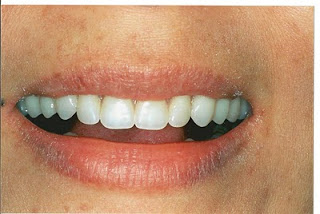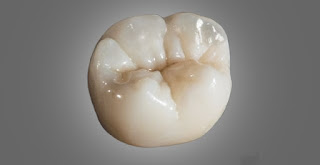When a full denture is the best option?

Picture of smiling denture patient Please don't get the wrong idea. I have spent most of my professional life striving to help my patients save their teeth. When they have a tooth extracted I usually recommend an implant replacement. That being said, sometimes less is more, literally. When a patient requires extensive treatments and financial sacrifice in order to allow for an implant supported restoration sometimes it still makes sense to go the implant route, but sometimes it isn't the best option For some, including implants in their treatment plan , makes no sense. Patients can have conditions that make treatment planning an implant supported restoration a poor choice. These can include financial, mental or physical limitations. Health issues can often make treatment planning implants more complicated since debilitated patients aren't the best candidates for extensive dentistry. Just because full implant case is possible, doesn't mean tha...



